If you’re the type of person who wants to travel to exotic, warm places and wants to explore the Saharan desert, the savannas and see in person, the wild African animals that you have only seen in documentaries, then you would think visiting Mali would be the place where you could find all of these.
Mali is the 8th largest country in Africa and is located in the West, next to Niger, Algeria, Mauritania, and Ghana it would constitute a wonderful experience if you are passionate about the African history, culture, and people.
It has points of attractions such as the Grand Mosque of Djenné, Boucle du Baoulé National Park, National Museum of Mali, National Park of Mali, Bandiagara Cliffs, Djinguereber Mosque, Tomb of Aski, and the capital of Bamako which is also the largest city in the country. Not to mention Mali has 4 attraction points that are listed in the UNESCO patrimony due to their high historical importance.
However, according to Trip Advisory, Mali is listed on the Do Not Travel list of countries due to its high risk of crime, terrorism, kidnappings, and robbery.
In this article, we will discuss the potential risks that come when traveling to this country and we will provide you with some piece of advice in order to enjoy your experience if you ever decide to visit it.
Highest Risks You Expose Yourself to When Visiting Mali
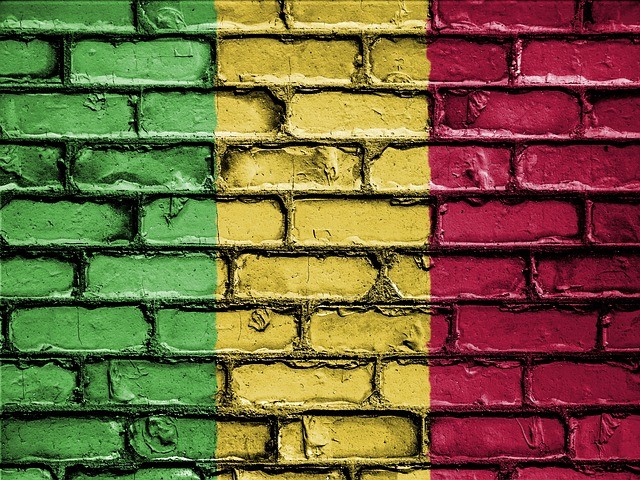
Overall Risks in Mali: HIGH
It is highly dangerous to travel to Mali because the risks of crime and terrorism are really high. Incidents like really violent crimes and robberies are happening on a daily basis so the recommendation is not to visit the country.
Furthermore, there is a security risk that needs to be taken into consideration due to all the instability that is happening in Mali regarding terrorism and crimes. Other things that cause the risks here are the constant protests and political demonstrations that should be avoided at all costs because they tend to get extremely violent.
It is advised to be really careful and be prepared for any scenario that can take place. For instance, it is recommended to have a food and water supply in case of any disturbances take place.
Moreover, watch the news every day to look for any updates in order to make sure what period of the year would be the most suitable for your trip. The holiday season is the one that should be avoided at all costs due to the high risks of thefts, armed robbery, and other crimes.
Additionally, there are often incidents of terrorist attacks against crowded places such as music festivals, malls, hotels or restaurants.
Pickpocketing and Theft Risks in Mali: MEDIUM
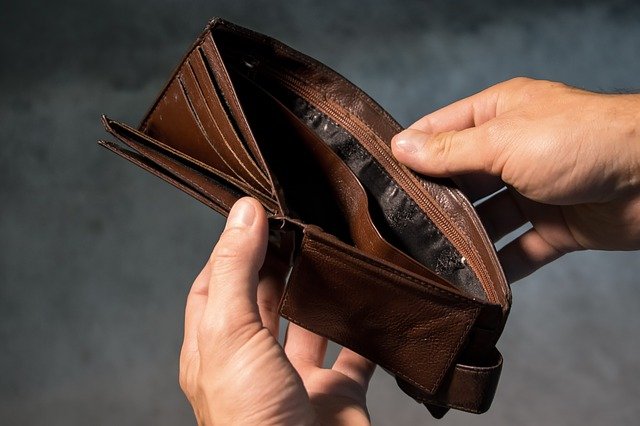
Even though the entire criminal activity is really high in Mali, the theft and robbery risks are not that big (as it is for terrorism). There have been incidents of armed banditry, especially in the northern part of Mali because that’s the place they usually operate – at the north border because there are a lot of travelers that are crossing it and they are at risk.
It is important to be vigilant at all costs because it is never sure where do the robbers come from. The airport is another place you should be careful – especially with your belonging – at Bamako Airport have been a lot of reported robberies and further scams on tourists.
- How to avoid pickpocketing and theft in Mali?
The only way you cannot actually avoid nor being robbed or a victim of any sort of crimes is to be extremely careful. By that, we mean that you shouldn’t go out at night at any costs due to the increasing number of attacks.
Do not carry anything expensive with you when you’re out and be aware of your surroundings. If you see someone approaching you or you feel that they’re following you, you should leave that place and avoid any sort of interactions.
Most of the times, there is a high chance you won’t even know that you’ve been robbed because they can be really smooth with this specific act.
Try avoiding the regions in the North, such as Mopti, Gao, and Kidal, due to the increased risk of crimes and especially terrorism. The overall advice is to be really precautious and always take care of your belonging – never leave your bag or documents unsupervised or with someone else, because you can never what will happen.
Scam Risk in Mali: MEDIUM
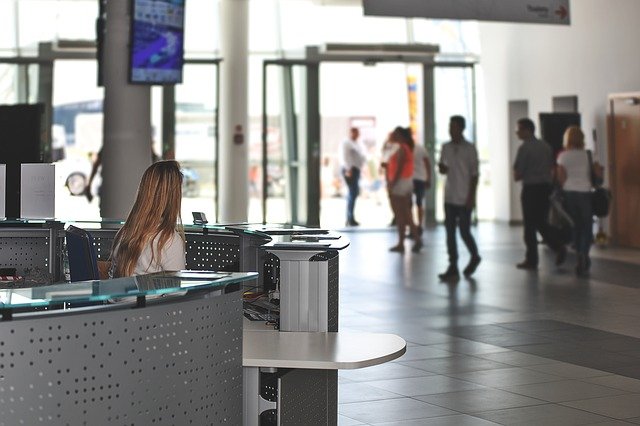
There have been reports on scams in Mali, especially for the foreigners such as British or Americans. Most of the time the way they can operate would be the following situation: a job offer that implies sending money over before being hired, a business proposal that can get you a lot of money if you invest something at the beginning in order to boost the business.
Moreover, there are a lot of scams happening at the airport, where the officials there might ask you for a certain amount of money because there is something wrong with your luggage or with your documents.
You should be very wary when you exchange money at the exchanger because you can be tricked in getting less money than you should – they can tell you that the exchange rate is higher than it is shown at their desk.
- How to avoid getting scammed in Mali?
The best recommendation in this given scenario is not to trust anybody or any sort of information that may sound “fishy” to you. This is the best way of staying safe and not interacting with individuals that don’t seem legitimate.
Moreover, if it appears that one of their local officials approaches you to ask you for money because you’ve done something wrong there, ask for an identification ID and trust the ones that have their name and their picture on it.
Kidnapping Risk in Mali: HIGH
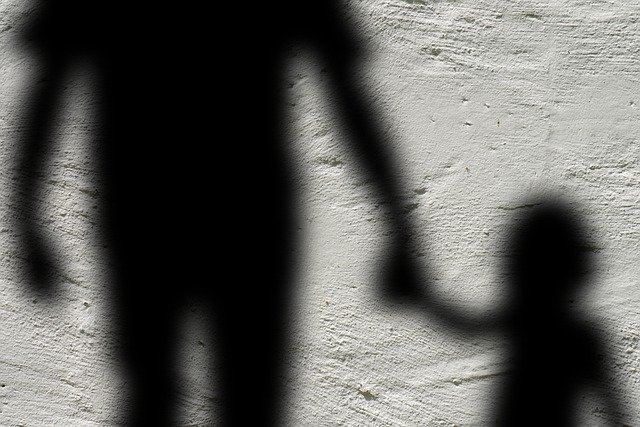
There is a high risk of being kidnapped in Mali by the Al Qaeda group and other Islamist groups that run in northern areas of Mali. For this area and the capital, there is advised for the foreigners to only travel if they really want to and not go there as tourists because they can be at a high risk.
A large number of Western nationals have been kidnapped and some of them were killed – there were journalists and tourists and some non-governmental organization workers.
The entire country is at risk because they can travel on a long distance in order to carry on a kidnapping so you should be vigilant at all costs by your surroundings because you never know when something like this can take place.
- How to avoid getting kidnapped in Mali?
There are some ways you can avoid this to happen, one of them being to avoid all areas that are highly dangerous in order to minimize the risk.
With that being said, there will always be a risk of being kidnapped but there are certain places that aren’t as dangerous as the Northern region, such as Bougouni or Kita (they are smaller cities that will feel a little bit safer)
Terrorism Risk in Mali: HIGH
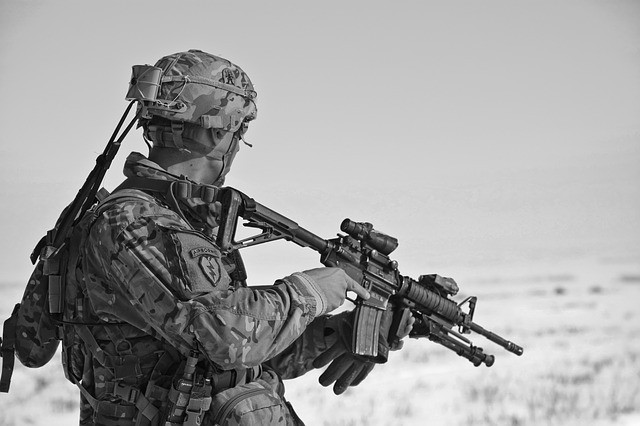
Terrorism is much likely to take place in Mali, especially in the capital, Bamako and the northern regions. The places that are extremely risky are the crowded ones such as the city Centre, hotels, and restaurants. In the year 2017, the American Embassy warned the citizens to be careful when going to the music festivals that took place in February.
A month before, in January of 2017, another music festival, called The Festival au Désert that took place in Timbuktu was canceled because the security risk was too high. Keep in mind that all festivals are risky because you can never anticipate what it can possibly happen.
Additionally, terrorism usually operates on the northern borders of Mali and that area should definitely be avoided. In the past few years, there have been a lot of terrorism reports that were aimed at the foreigners and tourists.
A good example in this way would be the attack from June 2017 at the Kangaba hotel, where a lot of people have been injured. Moreover, in 2015, a terrorist attack took place at the Radisson Hotel, where 19 victims were killed, including tourists.
From August to Septembers, locals choose their President so there are a lot of street demonstrations where usually terrorist attacks can occur so that is why it’s advised not to join this kind of demonstration and try to stay as far as possible from them.
- How to avoid terrorism in Mali?
As usual, the best way of avoiding being a victim of terrorist attacks is to stay away from large groups of people and large gatherings because you can never anticipate what is going to happen in the next hour or so, as things can get really “fluid” in Mali – at one point everyone can seem really peaceful and after a few hours a terrorist attack can take place.
Even though terrorist attacks in Mali are only meant to express an opinion regarding politics or any other belief regarding the locals, foreigners can be at a high risk as well so do not feel like you are not targeted because you can be.
The Jihadist threat is present at all times, but you should check for recent attacks before deciding on visiting these places, Try to avoid cities like Gao, Kidal, In Khalil and especially the capital, Bamako, which is the most vulnerable to these sorts of attacks.
Risks for Women Traveling Alone in Mali: HIGH
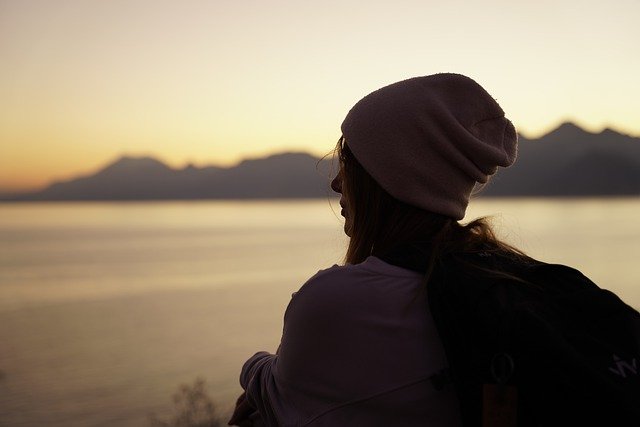
It is not recommended for women to travel alone in Mali because it can get very dangerous for them. This applies to all genders, but nobody, especially women should walk alone on the streets of Mali, because they can seem like they are very easy targets for crimes, robbery, and even kidnapping.
Sometimes there isn’t a specific motive for it, but there have been a lot of reports where women have been attacked by the locals.
If a woman really has to travel and walk by herself in Mali, she should at least go to places where she feels safe, where she sees police and that is being lit properly and don’t look sketchy.
Moreover, as the general advice for any country is, try not to trust anybody as in accept drinks from them or walk with strangers that might tell you they will walk you home. Any activity similar to this is extremely dangerous.
It is recommended to be vigilant and use your instincts, because certain people might not be dangerous, and we are not trying to say that every single citizen from Mali can and will harm you, because that isn’t true at all. Sometimes it’s good to see how the people are acting towards you and what they really want from you.
Try dressing as simple as possible and do not wear any clothes that might be too “revealing” in order to avoid more hassle. Additionally, do not wear any earrings, bracelets, necklaces or jewelry in general, especially if they are made of gold to avoid any incidents even more.
- How to avoid crime as a solo woman traveler in Mali?
It is advised to try as much as possible to not walk alone at night because it can be very risky for you. As a woman, you can also be exposed to scams and other criminal acts because you can be more vulnerable.
Moreover, if you are in a situation similar to what we’ve stated above, try getting out of it by announcing the local police or any natives because they can help you.
Rape Risk in Mali: MEDIUM

There are no recent reports of travelers/ tourists being sexually assaulted by locals/ strangers. It seems that most of the rape cases involve locals only, from remote areas/ villages and such. However, as mentioned, no tourists/ foreigners have been targeted in recent years.
Still, this does not mean that you should rule out this risk entirely. The risks is still here and you must be prepared for everything that may happen. In this respect, it is recommended that you check the local laws and customs, as to avoid upsetting any locals, as well as approach a decent outfit during your stay there. In short, women are expected to dress in a modest manner.
- How to avoid getting raped in Mali?
As mentioned, try to not offend any locals or draw too much attention towards you. Try to blend in with the locals as much as possible. Obviously, traveling alone is not recommended and you should always have someone by your side, especially for long trips/ walks.
You should also avoid displaying any valuables, such as gadgets or jewelry, that could attract any unwanted eyes. It is well-known that a simple act of robbery can turn into much more if the attacker realizes that you are a tourist.
As long as you take the required protection measures and stick to the city's safe places, so to say, you shouldn't have to deal with anything bad or unpleasant.
Risks for People Traveling with Children in Mali: MEDIUM to HIGH
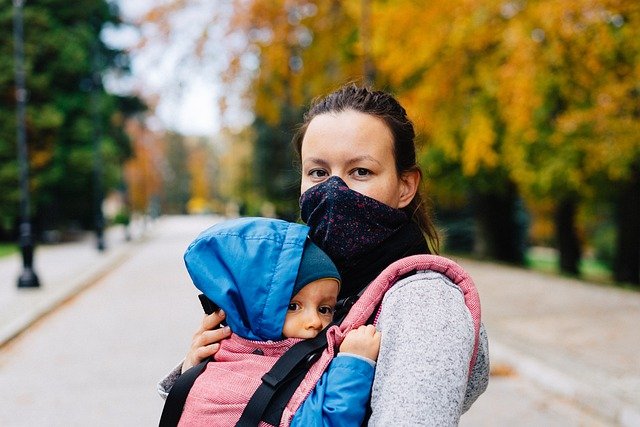
Mali is not a safe country for the little ones. The country has seen incidents of armed banditry, kidnap, and car-jacking in both its northern and central parts. Moreover, it is also known that smugglers and bandits are active along the country's northern borders and have attacked tourists, especially during the night.
Therefore, unless you plan staying inside your accommodation at all times, you should not bring your children with you. Transportation is not reliable, travel conditions are poor, and certain groups are known to plant landmines in North, North East, and Center Mali. It goes without saying that this is not the proper environment for a field trip.
- How to avoid unwanted scenarios?
If you, however, want to bring your children with you, then you should come up with a plan of action, so to say, and have an itinerary that implies visiting only certain objectives in the city you are accommodated in and avoid leaving it. You'll have to keep an eye on your children at all times and make sure that they don't go too far away from you.
Moreover, you have to take care of their health as well. Malaria, cholera, as well as other tropical diseases are common in Mali. You'll have to pack some medicine that you may need during your trip and check your children's condition every single day, in order to make sure that they are in good health.
Naturally, all of this cannot be done alone and, as a matter of fact, it is not recommended that you try to do such thing alone. If you travel with your children, you should definitely have one or two more adult persons accompany you.
Natural Disaster Risks in Mali: MEDIUM
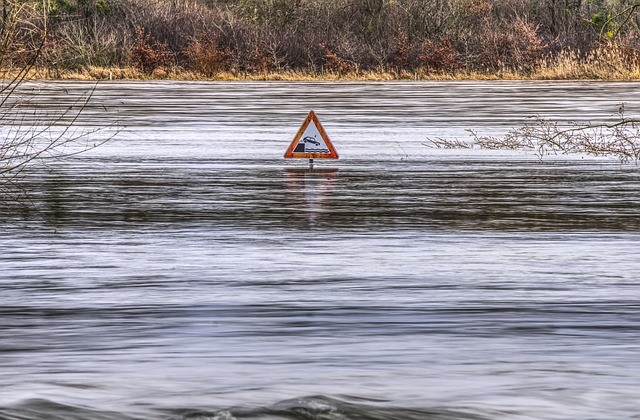
The only natural disaster that comes with issues for Mali, so to say, is the rainy season, which runs from May to October. While the rainy season is on, torrential rains usually cause landslides and floods. Floods come with a mortality rate of 98.3% and are responsible for most of the country's economic losses.
In this respect, it is important that you properly prepare yourself before a trip - if you are in Mali between May and October. Make sure to have enough supplies with you, in case you get stranded, as well as tools that might aid you in case you or your car get stuck.
Obviously, you should check the local news and weather reports before leaving your accommodation. Pay attention to all of the given warnings and do not underestimate the torrential rains - if you think a trip/ walk is too much, then it is better to reconsider and not leave your hotel room.
In case of long-distance trips during the rainy season, you should leave your itinerary to someone that can alert the authorities in case you fail to check-in with them at the set time and date.
Transportation Risks in Mali: MEDIUM to HIGH
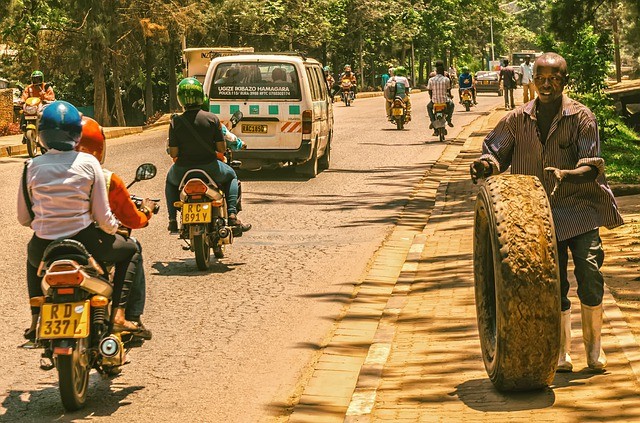
Traveling to the country's north and central parts is advised against. Also, as mentioned before, the Center, North East, and North of the country are under pressure of the several groups that operate here and use landmines to carry out attacks.
If you plan on traveling outside of any main urban areas, then it is strongly recommended that you employ personal security and be vigilant. Keep in mind that traveling through Mali is very difficult, as road conditions are poor in terms of overland travel.
You will come across night-time checkpoints in Bamako, at various locations. These usually operate from 9pm until dawn. Be very careful when approaching such checkpoints, as there have been some cases of fake police officers demanding money from drivers. You should always ask to see identification. If you are threatened, it will most likely be at gun point, case in which you should comply with the attacker's requests.
Drivers are known to drive dangerously, even in urban centers. If you plan a long-distance trip and have to steer off the main road, be aware that secondary roads are in poor condition - the situation gets much worse if you are traveling during the rainy season.
In case you are involved in a vehicle accident, it is recommended that you go to the nearest police station in order to fill a report. You should not stay at the place of the accident, as locals are known to have attacked foreigners that have cause or were involved in road traffic accidents.
Medical help may be limited, so it would be better if you packed a first-aid kit with the tools and medicine necessary for minor treatment until you get to a hospital.
Night-Clubs, Pubs, and Bar Risks in Mali: MEDIUM
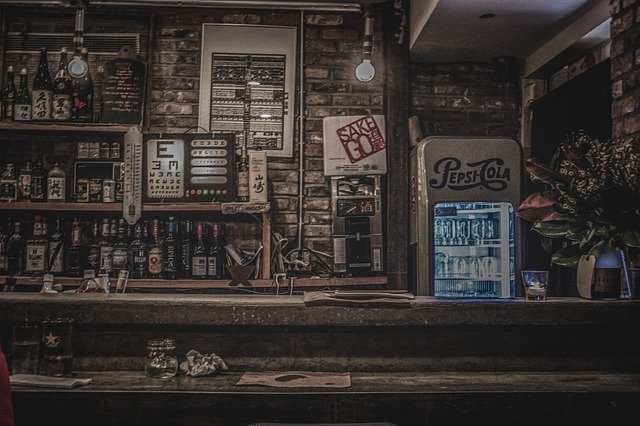
There are no reports of incidents that have taken place inside night-clubs, pubs, and bars in Mali. Naturally, this doesn't mean that you shouldn't pay attention to your surroundings.
Even if nothing might happen, you still have to be vigilant. In this respect, we recommend you to visit the night-clubs/ bars that come with good reviews or trustworthy recommendations - either from reliable locals or from your accommodation's staff.
The same goes for your means of transportation, so to say. If you plan on using a taxi to get to a night-club or return home from it, it would be best if you asked your accommodation's staff for recommendations, as they are likely to provide you with the names of the most-reputable taxi services in the city.
Also, you should not visit pubs/ bars all alone. Given the fact that you are in a foreign country, it is highly advised that you are always accompanied. Naturally, do not accept any drinks from strangers and do not leave yours unattended. Even if the use of spiked drinks has not been reported yet, it is better, and safer, to not rule our this risk.
Health Risks in Mali
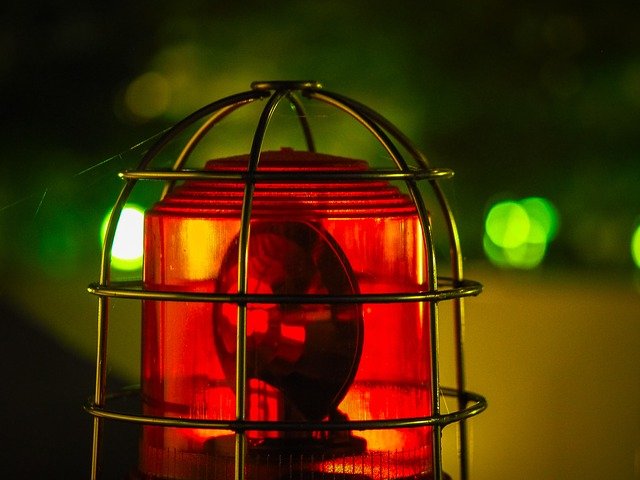
There are a couple of diseases common to Mali that you should take measures against, namely malaria, cholera, and several other tropical diseases. One of the last outbreaks of cholera has been reported towards the end of May 2013, near the Nigerian border with the Gao province. There are also reports of outbreaks of meningitis - these usually occur from the end of February to mid-April.
It is recommended that you drink only bottled or boiled water and avoid having ice put in your drinks. If possible, stock a supply of bottled water to rely on during your stay in Mali.
When it comes to medical facilities, they are very limited throughout the country. There are a couple of private hospitals that can provide you with a better treatment, however - Polyclinic Guindo and Polyclinic Pasteur.
Before traveling, make sure to properly read your travel health insurance and know what you are covered for, so to say. Also, make sure to bring with you enough funds to cover the costs of medicine, treatment, or emergency evacuation that you may have to pay in case of an emergency. You should let your medical assistance company know your condition as soon as possible if you are referred to a medical institution for treatment.
List of Vaccines You Need in Mali
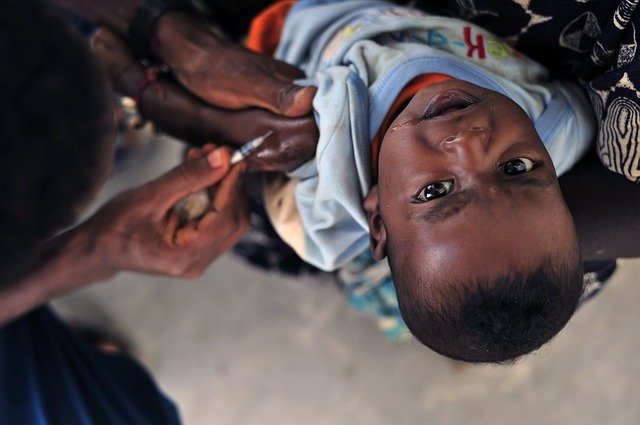
Naturally, before traveling to a foreign country, you have to check which vaccines you should take in order to ensure your good health. Even though we'll provide you with a list of the recommended vaccines, it is still recommended that you check with your doctor or check the Mali-specific health advice with at least eight weeks before your trip.
Here are the vaccines that you need in Mali:
- Hepatitis A and B
- Malaria
- Typhoid
- Yellow Fever
- Routine Vaccines
- Measles
- Meningitis
- Rabies
Most Dangerous Areas in Mali
From what we’ve said, there are a lot of areas that should never be visited, especially the western areas like Tessalit, Kidal, Gao, Mopti, and Tombouctou. These areas are advised against all traveling while areas like Segou, Kayes, Koulikoro, and Bamako should only be visited for essential traveling like business related gatherings.
There are a lot of spots that can be avoided due to the criminal acts that increased over the years. For instance, in 2017 a lot of terrorist attacks took place in the areas of Le Campement Resort and in Bamako, the United States of America issued a security message that claimed that there is very risky to travel here.
Concluding Remarks: Is Mali Safe to Visit?
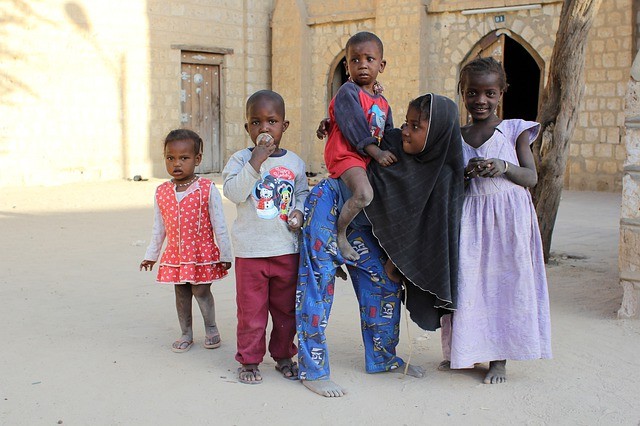
Overall, is it Mali safe to visit? The answer is that for certain areas it is not safe at all due to the increase terrorism and banditry. It is good to know that you should never, as a tourist, visit the Northern part of Mali, because it was under the control of Islamist rebels, that have very specific laws that can harm you.
You should be vigilant at all times, especially when you are out on the streets, in train, buses or even taxis. Moreover, the Bamuku area is very well known for thefts and you should stay away from commuting from one city to another as much as possible.
When deciding on going on a trip to Mali, you should do all the needed research on what places you should visit and how safe is they in order to make sure that nothing will harm you.


